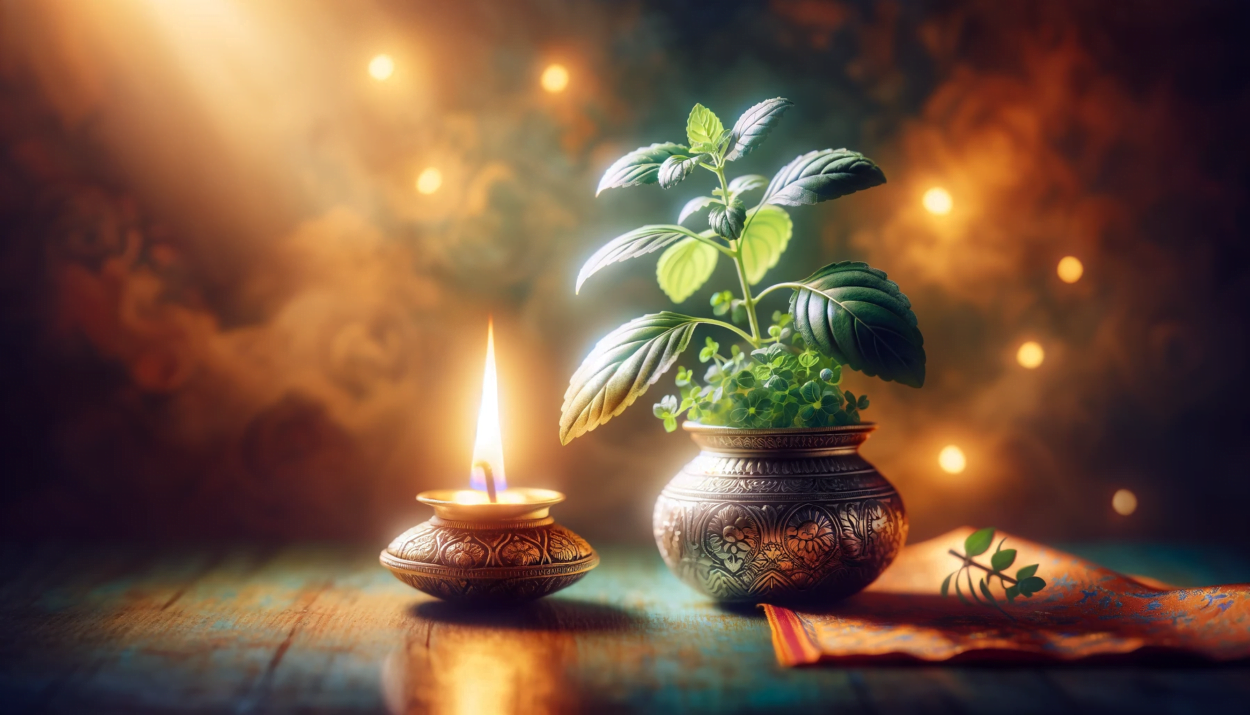Tulsi Pujan Diwas, observed on December 25, 2023, is a day steeped in spiritual significance for Hindus worldwide. This festival venerates the Tulsi plant, revered as a holy and medicinal herb, symbolizing purity, health, and spiritual well-being. This article explores the rich traditions and rituals associated with Tulsi Pujan Diwas, underscoring its importance in Hindu culture and its believed impact on bringing prosperity and good luck.
In Short
Understanding Tulsi Pujan Diwas
Tulsi Pujan Diwas, also known as the Haripriya Festival, is a day dedicated to the worship of the Tulsi plant. According to Hindu mythology, Tulsi is considered sacred, often associated with Goddess Lakshmi and Lord Vishnu. The day involves various rituals that highlight the spiritual and cultural values of Hinduism.
Rituals and Practices
The core of Tulsi Pujan Diwas lies in its rituals. Devotees light ghee lamps near the Tulsi plant and offer prayers without plucking its leaves. These acts are believed to bring divine blessings, health, and prosperity. The significance of planting Tulsi at home is also emphasized, symbolizing the presence of divine energy.
The Spiritual and Cultural Impact
Tulsi Pujan Diwas is more than a religious observance; it’s a day that reflects deep spiritual and cultural ethos. It strengthens the bond between devotees and the divine, symbolizing purity, devotion, and the quest for inner peace.
Conclusion:
Tulsi Pujan Diwas embodies the essence of devotion and faith in Hinduism. The rituals performed on this day are not just mere acts of worship but are imbued with spiritual significance, offering a moment to reflect on the sacredness of life and the blessings of nature.






